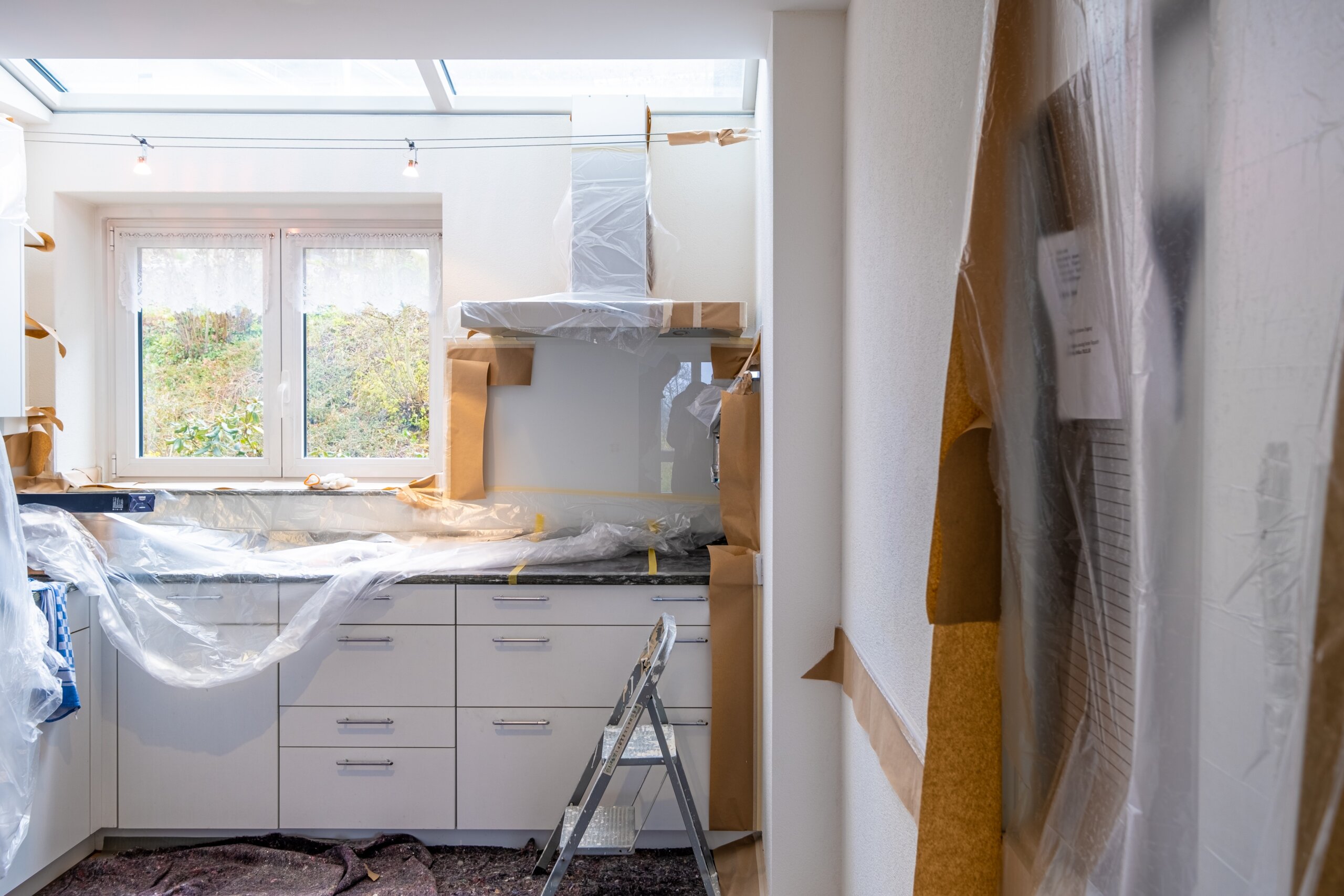According to industry experts, home renovations are in full flow, as people find out that they really need that extra study and spend their holiday money on something related to home.
And why is this a question for your mortgage advisor? Henk Jansen says mortgage lenders have three reasons to be interested in your home renovation. First of all, in theory, you should inform your mortgage lender if you are about to start a home renovation. Secondly, you might need some extra funding and raising money on your mortgage could be an option. And thirdly, your renovation could add value to your home, provided you plan it properly and make prudent choices.
To start that there are six stages, according to Jansen. “First: think of what you want, for example, an extra floor on the roof or solar panels”, he says. “Then select a contractor: not an easy task as there are too few. Three, make sure the contractor is available to do the job (well). Arrange permits if needed, then arrange funding. Six: get the job done. It will take more time than expected and you will be confronted with extra work or costs!”
When you are thinking of your budget, if you don’t have enough money, first talk to your mortgage adviser about your current loan. “We usually help people take out a certain amount of mortgage, but we register a higher amount of mortgage in the deed at the notary,” he says. “This higher registration gives you the possibility to get an extra amount of mortgage without seeing a notary again, which saves you about €1,000 but also time.”
If you already paid some capital from your mortgage, you would probably be able to reborrow this amount easily. Otherwise, your adviser will assess your loan-to-income ratio (LTI) to check if you can still repay the amount, and the loan-to-value (LTV) ratio of your home.
When the cash comes in, it goes into a special building deposit account. Either the contractor could be paid after you providing the invoice or if you pay the contractor, or buy something, they would pay it to you. But they don’t just give you the money and say: “good luck”. This control is a good guarantee for getting the work done properly.
“Your house is probably the possession with the most value that you have, so be careful,” warns Jansen. “A constructor should have a CAR insurance for construction or risk. People try to get cheap contractors and laborer’s and pay black market, but you want to be insured, and make sure you work with qualified people, who come recommended.”
It is also important to have in mind what could go wrong. At the worst, the clause in your mortgage that says you should have informed the lender could have serious consequences. “Some people tear down their whole house and then find they don’t have enough money, or a good plan, or the contractor goes bust,” he says. “But the value of the collateral for the bank has diminished, and that’s what they want to avoid. At the end of the day, they can execute the deed of mortgage which means they can sell the property on your behalf at auction. I can’t recall this happening, but technically that’s the bottom line.”
He also warns of finding a good contractor, a good one will know what you are and aren’t allowed to do in your local area.
On the plus side, if you are doing work to improve the environmental performance of your house, such as adding insulation, solar panels or a heat pump, you can borrow an extra 6% on your mortgage and may qualify for government subsidies too. “This will increase the energy rating of your property as well and this will increase the value of your house if you sell it,” Jansen adds.
Finally, put yourself in your neighbour’s shoes, there is absolutely no benefit to them that you are doing up your house, only constant nuisance while they are at home. “Communicate!” advises Jansen. “If you are doing all the work yourself at times that are logical for you, but not for other neighbours with young kids who are doing all their work at home, inform your neighbours.
“Then, if someone nearby has a really important meeting, they can either find a work spot for that special day or ask you to stop for a short while. If you communicate, it really helps: afterwards, you have to live there for a long time, so take a friendly view!”
Planning is all, he adds, especially as it may take three to five weeks to raise an extra loan, let alone get started on the project. “But your property isn’t only your home anymore: it’s your workspace too,” he says. “It is a very good idea, especially now during Covid, to increase the value of your property and make it more comfortable.”
You can also read our article “Will working from home change where we choose to live?”
Disclaimer: The information provided in this article is for general informational purposes only and does not constitute personal financial, legal, or tax advice. While we strive to keep our content accurate and up to date, rules, regulations, and market conditions can change quickly—sometimes faster than we can update our articles.
Before making any financial decisions or relying on this information, we strongly recommend consulting a qualified advisor who can assess your individual situation and provide tailored guidance. We do not accept any liability for actions taken based on this content.

